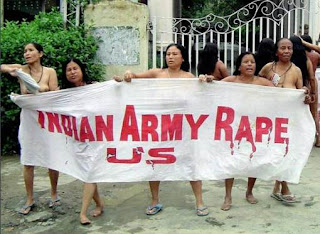I was recently reading a book named 'Games Indians Play*' by V.Raghunathan, in which he tries to explain the social and public behaviour of Indians using the props of game theory and behavioural economics. His observations and examples captured my imagination and led me to the question- why are we the way we are?
Why do we spit at free will? Why do we throw our garbage around with the gay abandon of a Punjabi uncle flinging a 500-rupee note at a wedding? Why is our sense of hygiene so gross? Why do we leave a public toilet smelling when we want it to be squeaky clean when we enter it? Why do we run the water tap at full blast during shaving, knowing well about the acute water shortage in the city? Why don't we stop our cars to let an old lady or a child cross the road? Why do we write on walls with the enthusiasm of a small child? Why do we tear off a page from the borrowed library book or write our names on public properties like buses and trains? Why do we routinely disregard the airline staff announcements about switching off our cellphones? Why do we routinely jump out of our seats in a mad rush for our luggage even before the aircraft has come to a halt? Why are we so averse to voting? Why don't we stand up against social ills? Why do we overtake from the left? Why do we try to jump queues? Why do we try to jump red lights with the cheerfulness of a kangaroo?
Are there any answers to all these why's? We always tend use the cliche ' I am like that only', but when we consider a billion Indians thinking alike, the situation becomes grave. And there by I ask, why are we the way are? Through these questions I do not imply that we do not have strengths as a people. Indians are intelligent and industrious people who have made a mark for themselves all round the world. We have strong family values, are reasonably friendly and stick together in times of hardship (for e.g., in the aftermath of natural disasters, terrorist attacks and wars). But these traits are not singular to Indians only. People from Japan, China and Israel are no less industrious than us, having robust family values. They why have they marched ahead of us while we maintained the Hindu rate of growth ever since we attained independence? It is a fact that we are an ancient civilization and one of the most advanced upto medieval times until the Mughals and the British arrived. But did their invasion have an onslaught on our social principles? Or have we simply metamorphosed into being how we behave today. It is a fact that every civilized society (like ours) suffer from ills, but that does not make our own ills more acceptable. Ignoring our shortcomings and putting blame on other factors is our own 'Freudian' way of escaping the harsh realities.
I know some people will say I was being too harsh in my accusations in calling our society less civilized. Hence I will present a few statistics as given by Mr. Raghunathan. The pan Himalayan Lhasa railway, at an average altitude of 5072m with 550km frozen belt out of the total 1400km was built in 4 years flat! Cut to India, the impressive completion of the Konkan railways or the Delhi Metro seem pale in comparison to the infrastructure projects completed elsewhere in the world. Is corruption the one word answer that we will come up to cover our short comings? Beyond corruption, I think it is the weak foundations of civic sense and false sense of national pride that does us in. We Indians are privately smart but publicly dumb! We are a selfish race, with near zero self conscience. We wash our hands off responsibilities towards the way we are. Our social pride is limited to the carrying our age old rituals and customs ahead in the name of culture. We might have achieved many things today, but primarily as individuals rather than a collective group. A few great men cannot make a great nation, it is the greatness of the entire society that achieves it. I know most of you will agree with what I point out in this article, but rarely anyone will act upon it. And there in lies our Indianness in being 'like that only'...
(P.S. Many examples and lines in this article have been directly lifted from the book marked *)





